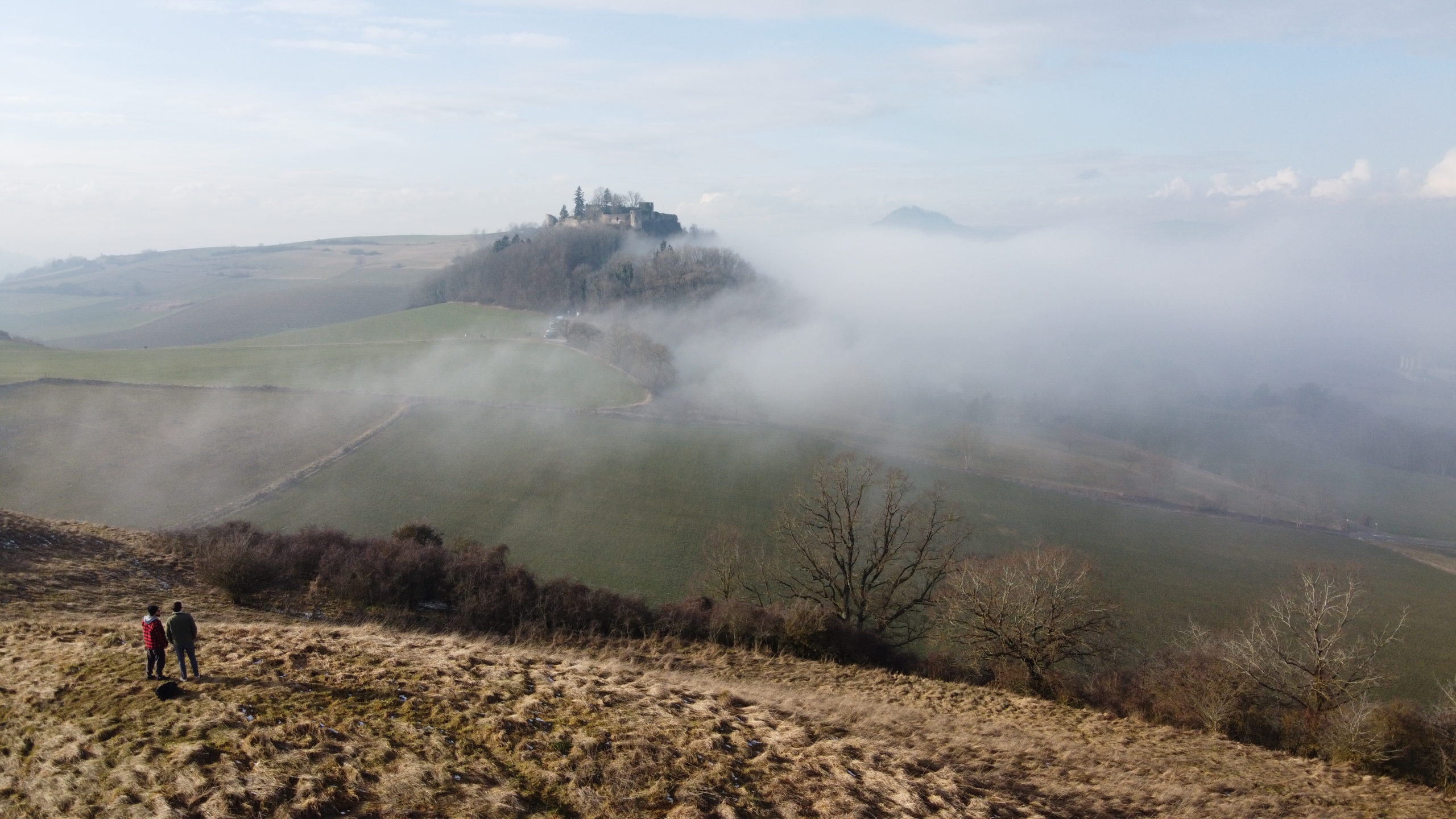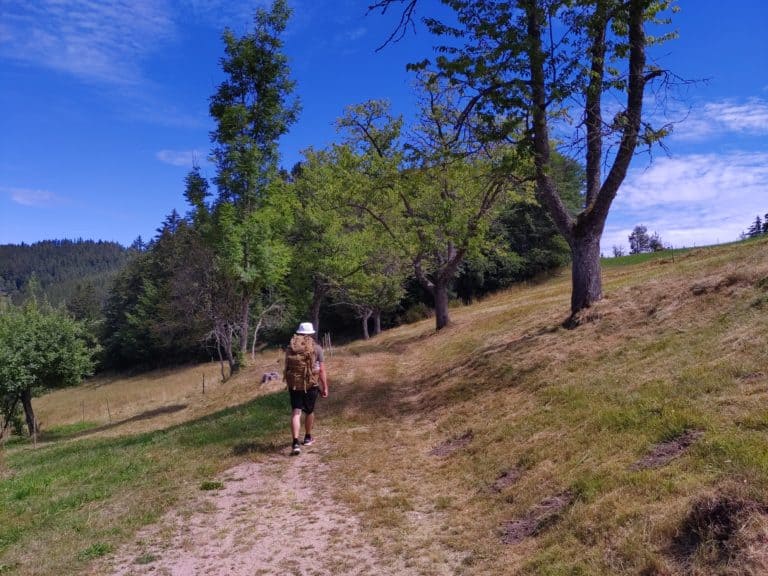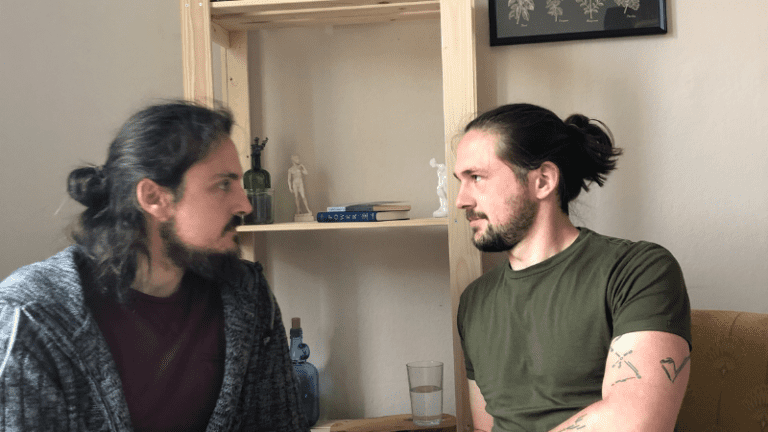Alan Watts: Why we feel out of touch with the world
Many philosophers have grappled with the question of who or what we actually are as human beings. By this, very few mean whether we are hairless descendants of apes or the creation of a god, but what makes us human. Alan Watts has presented his views in various lectures. This article is about how Alan Watts described human nature.
According to Watts, for the most part, we feel like strangers in this world because we have been separated from it by words since we were very young. Views are imposed on us that are not necessarily our own. Especially in Western culture, we see ourselves as the crowning glory of creation and thus devalue everything outside of us. We feel that we are born into this world instead of out of it.
Here is a short video, of a talk by Alan Watts on this topic. I recommend you watch it before we get into exactly what he meant by it (if you don't understand English just skip the video):
Meaningful translation
Let us now also look at the monologue. I have taken the liberty of adding some comments to it in order to explain deeper meanings and also references a little more closely:
"Who do you think you are? Most people think that they are a center of sensitivity in their skin. Most locate this center in their head. In different eras and different civilizations, this feeling was felt in different places in the body.
Some felt this center in the solar plexus, others in the abdomen. In Western culture, most feel it behind their forehead. It is as if a small man is sitting in the center of the head. He has a TV in front of him to receive the information from the eyes, headphones to receive the messages from the ears, and he also receives all kinds of information from the nerve endings. The little man also has a control surface in front of him with which he can control the arms and legs. And that is supposed to be you."
I think most of us agree with this view. I for my part at least, feel what I would describe as "I", in my head. After all, this is where all the information that our body collects comes together and is processed. How do you see that?
"Colloquially, we don't say we are a body, we have a body. So I am the owner of that body in the sense that one is the owner of a car. I can take the car to the mechanic and in the same sense I can take my body to the surgeon or the dentist and have it fixed. But the bottom line is that I am in this body. A child can ask his mother who he would have become if his father had been someone else, and that is a legitimate logical question. After all, it seems that our parents gave us a body into which, at the moment of birth or conception, a soul would have entered that was waiting to be called up in heaven before that. So we have the idea in Western culture that we are something alien to the world, stuck in a body."
Alan Watts once said that we are not born into the world, but out of it. So the body, like the mind, comes from this world. Almost all of our thoughts arise from accumulations of memories that we have collected over the course of our time on this planet. Carl G. Jung also said that man carries the history of mankind with him (the link is to Simon's article on the subject). There is nothing logically unworldly about human history, which supports Alan Watt's argument that we were born out of the world.
"However, we cannot be completely sure whether we are our body or not. I can talk, think, speak, and I do that myself. But I cannot beat my heart, form my bones or grow my hair. These are things that happen to me that I don't know how they are made."
In many philosophical schools, for this very reason, breathing has a very high value. Breathing is something that can be done actively if we concentrate on it, but we do not stop breathing just because we stop doing it actively. Therefore, there are a variety of breathing techniques that are used to meditate or to become more aware of the present moment.
"But one also feels that everything outside of myself is definitely not oneself. There are two kinds of things outside of oneself: The first is other people who also have a little man behind their forehead. Just like oneself, they are intelligent, they have feelings, and they are able to love and be virtuous. The other thing that exists outside our body is everything that is not human; we call it nature. It has no mind. It may have emotions like animals, but it is wild. Then if you look at the nature of geology, it is as stupid as anything can be. It is a mechanism to be mastered. The whole point of mankind is to bend nature to our will."
Have you ever sat in a pedestrian zone and watched the people walking by? Then you've probably thought about the fact that every single one of them leads a life just as complex as yours. And then you realize that the others are not so strange to you.
With animals, objects and things it looks quite different. We tend to be able to compare ourselves more with animals, because they share some similarities with us. They have organs and limbs and can act independently. With objects like houses or mountains we see hardly any similarity, although they come from the same world, the same universe, as we do. We want to change this world. According to our will. Best by just snapping our fingers.
"It feels like we came into this world. We don't feel like we belong here. In the words of the poet Houseman, "I'm a stranger and afraid in a world I never made." This is one of the symptoms of our false sense of identity, the feeling that we are something lonely, locked in a bag of skin. Lonely and confronted by a world that is alien to us, that is not me."

Almost everything we perceive as the outside world is perceived within us. It is perceived through our senses and processed in the brain. In my article "Sadhguru on Satisfaction and Dissatisfaction". among other things, this processing inside us is dealt with. After all, the trees are as much a part of our respiratory system as our lungs are. The sun is as important as our eyes to see. The apple is as important as our tongue to taste.
So it's not as easy as you think to separate the outside from the inside.
"In ancient philosophies such as Buddhism, this feeling of the lonely individual is a hallucination. A hallucination that is brought into being for various reasons. Among other things, how we are brought up. Our parents were burning to identify us. Who doesn't know it: you were out playing with a group of friends and you admired another kid in that group, you looked up to him. Then when you got home, you imitated the behavior of the other child. Whereupon the mother would say, "That's not you Peter that's Johnny." Of course, afterwards we felt ashamed because we had disappointed our mother. She wanted you to be Peter, her son, and not Johnny the son of Mrs. Jones. And so like in this example, there's a lot of ways in which we're shown that we're supposed to identify."
Of course, this personal identification can be established much earlier than at the age when one plays outside with friends. Often the first words a person learns are mother and father or mom and dad. The next thing you learn is your own name. At this moment, you begin to see yourself as separate from the world around you. Finally, you have something that separates you from the rest of the world and that is the false sense of identity.
"For example, one of the most important things we are taught in childhood is that we have to do something, but it is only appreciated if it is done voluntarily. Everyone must love his mother, but it must be done voluntarily. Everyone must vote, but it must be done voluntarily. One must be a member of a democracy, but one should be happy to be so. One must love one's God, but it should be done voluntarily."
Can you really talk about free will when you are expected to do it? Of course, it is desirable for a child to love his mother. However, it should love its mother because the mother lovingly cares for the child. Not because it is obligated to love its mother, simply because it gave birth to the child. Only when you do something of your own free will do you feel connected and close to what you are doing. It is precisely this connection and closeness that is at stake. This connection with the world makes us not feel like outsiders in this world.
"So when you're told who you are and that you have to be free, that you have to survive, that you have to keep living, it becomes a kind of compulsion. You get confused. It becomes a compulsion, even though you are supposed to be free. This is because something is required of you that you should do of your own free will. This inner contradiction causes people all over the world to feel isolated. They feel like centers of consciousness enclosed in bags of skin."
I have already talked to some friends and acquaintances about exactly this phenomenon. As soon as you are forced to do something, you lose the fun and joy of it. Imagine you go into the kitchen and see that the dishwasher should be cleaned out. But at the very moment you want to start, your mother comes in and tells you to clean out the dishwasher. At that very moment you lose the fun of it because it goes from something voluntary to a duty, a compulsion. Life should happen of your own free will and not because it is dictated to you.
Own thoughts
It happens quickly that one sees oneself as a stranger in this world. After all, we have hardly any possibilities to change anything about it. In comparison, it is relatively easy to change something about ourselves. At least that's what we often think, but anyone who has ever tried to quit smoking or exercise regularly knows that we also have little control over ourselves.
What helps me when I feel a little alienated from the world is to remind myself that every atom in my body comes from this universe. The carbon atoms that are in my body were once parts of planets and stars that died, dispersed throughout the universe, and are now a part of me. A fascinating thought.
It also helps to imagine that we are not just a little being born into the world out of the big nothing. Quasi an external observer of the whole. Imagine that the world or existence is a snail and you are one of its feelers or eyes. You are a part of the whole that observes the whole. You are one of the eyes through which the existence looks at itself.
Did you like this article? You can let us inform you about new articles:







